Revisiting the Digital Divide – An Ode to Prescott
Jessamyn West’s discussion of the 21st Century Digital Divide took me back – way back. I started working at the Walla Walla County Rural Library District in 2002. I was twenty-four. I was hired to open and manage a new one-room, 900 square foot rural library in a town of 300 people, Prescott, WA.
Prescott is surrounded by wheat fields and located in a very rural area of Walla Walla County in Washington State. It had a single restaurant and bar (that served a fantastic burger called a Jason Burger), a co-op gas station, a post office, and a small general store. The area around Prescott is beautiful and I saw many deer, turkeys, and sometimes sheep on my winding drive there through wheat fields. I lived about 20 miles south in the city of Walla Walla.
The view from that drive looked like this:
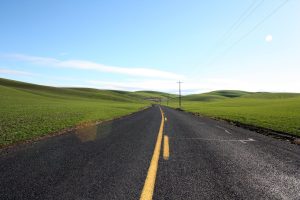
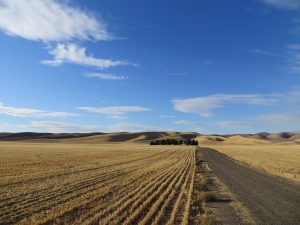
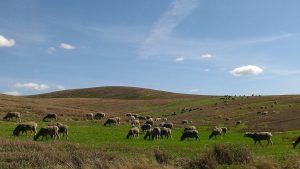
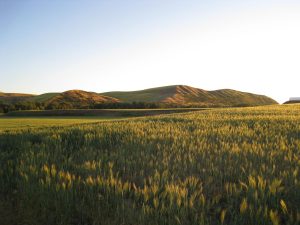
The picture below is almost the entire library. The shelving was from our administrative office. The collections started from cast offs from other branches. The space was an almost 100 year old renovated storefront. We were open just two days a week.
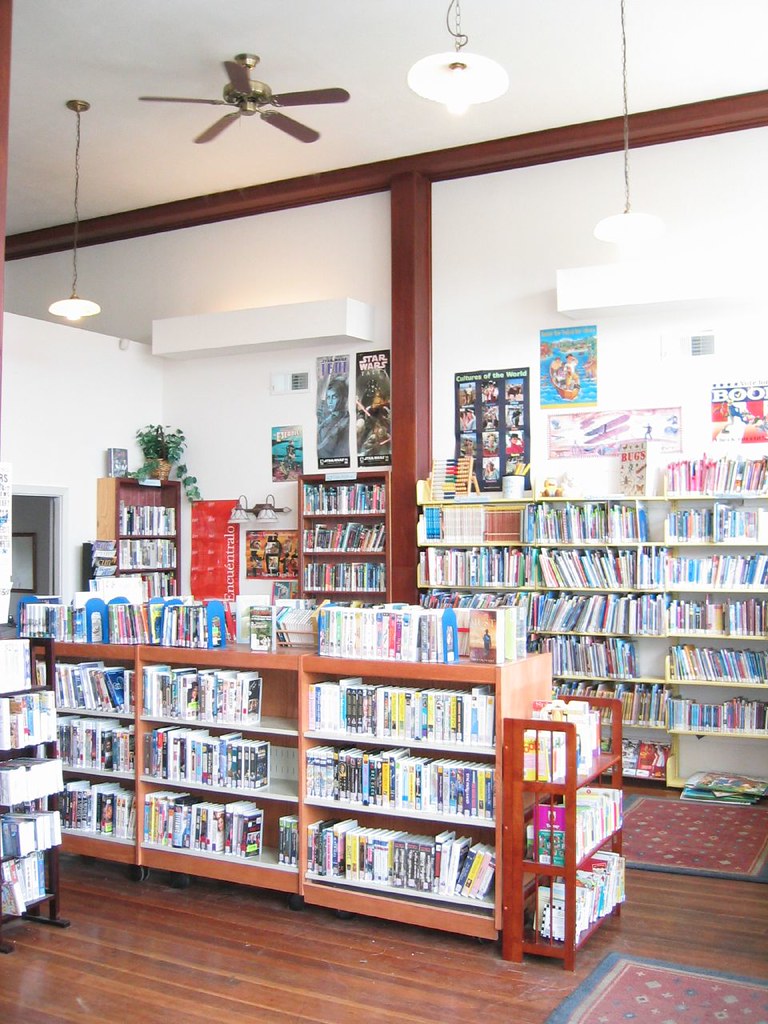
A community member made new stained glass panels for the old storefront doors. Oh, that’s me in the picture, seventeen years ago.
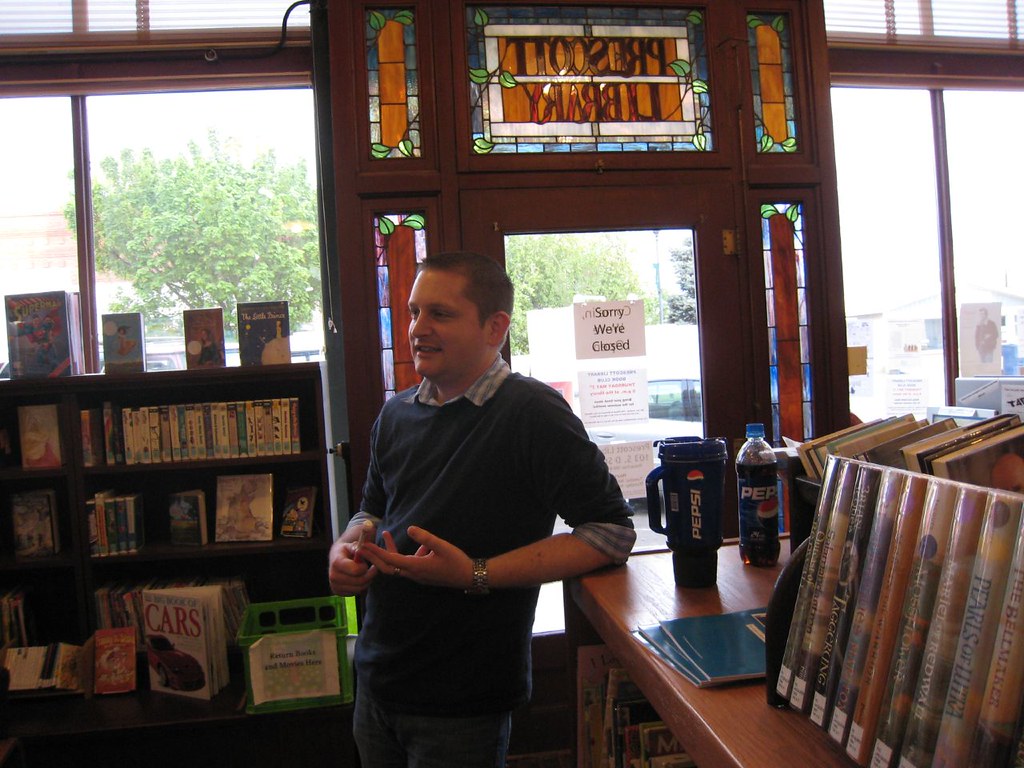
My biggest success was letting the teens have a heavy metal show inside the library. It was a fantastic disturbance to the small town – adults came from the nearby bar to see what all the noise was. Teachers and parents stopped by. Over twenty teenagers attended – a pretty good turnout.
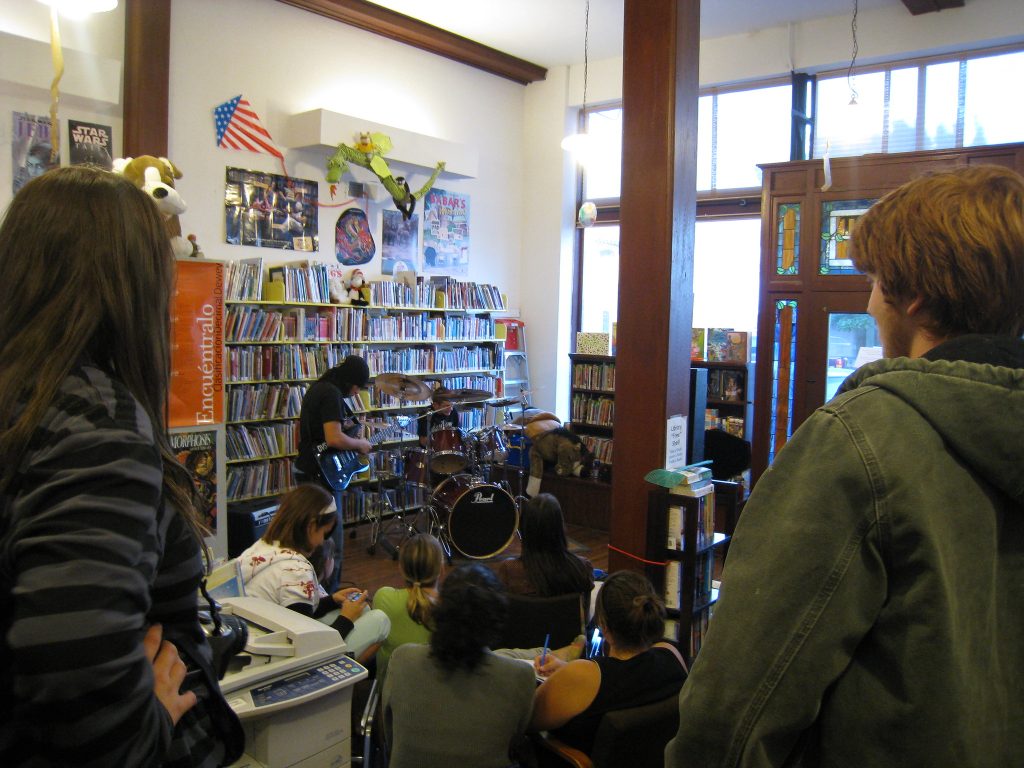
I worked for that library district for about twelve years, most of those in Prescott and performing tech work at our rural branches. I share all of this to frame that these beautiful places, filled with great people – were at the very bottom of the digital divide.
The library was the only place to use a public computer and access the internet in town, outside of a friend’s house or while the kids were at school. That internet first ran on an inconsistent satellite dish connection. Later we upgraded to 1.5 Mbps DSL that also worked inconsistently due to bad phone lines. Much later we hit the jackpot when were able to upgrade to 3.5 Mbps DSL over the same bad phone lines – double the speed! We had paper sign up sheets to use the computers and there was always a line.
Eventually we offered Wi-Fi access but we didn’t have enough bandwidth of course. Often I was unable to check out books due to this. I would scribble the barcode numbers down on paper and hand the books over. This was the MySpace era, the kids played web games, adults used email and Yahoo Messenger. MapQuest directions were printed and I’d regularly give people free prints because no one had money to throw around (don’t tell my old boss).
The National Broadband Plan came about later and promised to offer fiber internet access to the rural masses. But the infrastructure skipped Prescott. It went to the nearest towns to the East and West but not us.
We connected to it at one of our other libraries, in a town much larger – 3,000 or so people. The 10 Mbps Fiber Optic connection cost over $500 per month – quadrupling our costs. We only afforded it through the Federal e-Rate Program, which gave us an 80% discount on telecommunications costs, but also required us to filter our internet connections.
The “Reaching All Users” chapter of The Heart of Librarianship, reminded me of what we tried to do in Prescott. In this chapter there is talk of how to reach out, how to include all of the community. In this library we lacked so much – but we opened a space, we invited everyone in, there was community created. And not by me – at the time I had no idea what I was doing. But that community space encompassed so much over the years and was made what it was by the people that used it.
Digital Divide or not, I want to believe that the library work we committed to meant something. That all of those summer reading programs, books clubs, nights filled with listening to kids laugh and adults gossip, the teens that hung out because it was safer than being at home, and the adults who would stop in to check out books on their way home from work – meant something even though we were perceived to be lacking so much.
I would urge that when we talk about the digital divide and statistics and demographics – to remember we’re talking about people. People with lives that we can improve by simply providing a library, a space – and getting out of their way as they create community.
(This reflection is far too long! But I’ll gladly take a ding to my grade because the people I knew from back then, and am still in contact with, deserve to be talked about!)
References
librarian.net : 21st Century Digital Divide. (n.d.). Retrieved June 24, 2024, from https://www.librarian.net/talks/rlc14/
@jcwest This post is not too long at all! I enjoyed the look back at this amazing time on the “frontier” of service. Yay for the heavy metal show. So cool!
Thanks! I think that job taught me the most about people out of any experience in my life. I didn’t intend to reflect on that experience for this assignment but it was steeped in all of the issues of the digital divide and community that were touched on in the modules.
Side note, two of the kids that were there when I started in 2002 are now married and have children – which seems impossible!
What a beautiful share! I felt the heart in this and how lucky this community was to have you there. I grew up in a very rural area, and the local public library changed my life by giving me access to connections I didn’t have at home.
I would’ve been all over that rock concert in the library (how cool!). And this sentiment –> “meant something even though we were perceived to be lacking so much.” That spoke to me. Humans matter equally, whether in an urban or rural setting or somewhere in between. All those interactions, connections, and accesses given meant something.
I just connected the dots that you are the “Accidental Librarianship” classmate. No wonder this hit home! My apologies for being a bit redundant in my reply. Now that I’ve drawn the connection, it’s neat to link the chance way you came into library work you mentioned in that earlier post with the images of the rural library and the cool things you did there shown in this post.